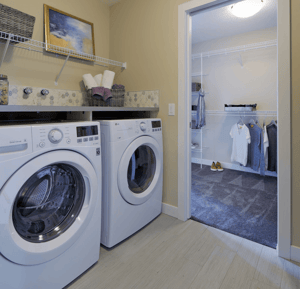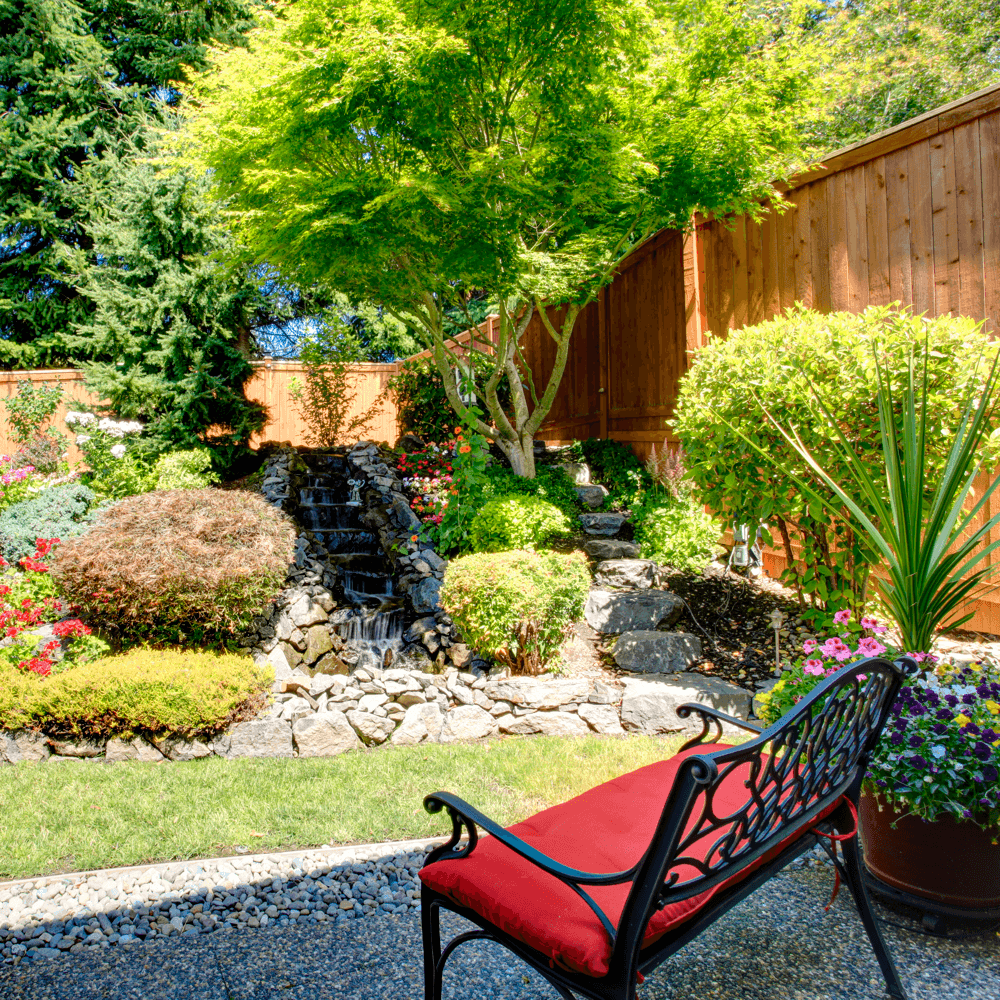
The earth might seem like it has abundance water, but in fact less than 1 percent is available for human consumption. The rest is either salt water found in oceans, fresh water frozen in the polar ice caps, or too inaccessible for practical usage. Human populations continue to rise which burdens our precious supply. Despite the fact that the water cycle continuously returns water to our earth, it is not always in the returned to amount, quality or even the same place.
Understanding Your Own Water Use
Have you looked at your water bill lately? Not just the amount due but how much you actually consume? Utilizing WaterSense labelled fixtures as well as water-wise landscaping or “xeriscaping” can save you hundreds each year!
WaterSense labeled products are backed by independent, third–party certification and meet EPA’s ( Environment Protection Agency ) specifications for water efficiency and performance. When you use these water–saving products in your home or business, you can expect exceptional performance, savings on your water bills, and assurance that you are saving water for future generations.
Leaky toilets silently cost you
Find and fix leaky toilets can save you hundreds of dollars each year. To find a leak, simply follow these steps: Drop food colouring into your tank. Wait 20 minutes. Peek into the bowl. If the water is coloured you have a leak. Click on the link below for a detailed “how to fix” a leaky toilet. How to fix your leaky toilet flapper.

Wash full loads of laundry
On average, washing clothes accounts for 15% to 40% of the overall water consumption inside the typical household of four persons. Wash full loads of laundry and clean up on the savings. When purchasing a new washing machine, consider buying a front-load washer. They use at least 50 per cent less water than the older top-load models.
Low flow water fixtures
New home builders ( check out NuVista Homes specifications ) and commercial construction, including renovations that require a plumbing permit, are required to have low water use fixtures in place per the Water Utility Bylaw.
Be Yardsmart!
Relax in your stunning yard that's easy to maintain, suited to Calgary's unique climate and save money and water at the same time. A YardSmart yard can transform your plants and garden into an inviting landscape that will be an inspiration to your neighbours and adds great curb appeal. Plus, less watering, less weeding and less fertilizing means you have more time to enjoy your yard and more savings on your water bill.
Starting in May, the City of Calgary and the Horticultural Society are offering multi-day workshops to help you create a well-planned, functional yard.

Creating your YardSmart yard
- Draw a layout of your yard and map out areas of sun, shade, dry and wet.
- Make sure to add areas like play areas, dining and entertainment, composting, gardening and rain barrels.
- Make a note of where water runs or pools. Additionally, group plants with similar water needs together.
- Slope your flowerbeds and place plants that need the most water at the lowest part.
- Shape your beds so sprinklers and soaker hoses can easily accommodate them.
- Consider native or drought tolerant plants
- Think about utilizing mulch, stone and possibly Eco-friendly, Hypo-allergenic imitation turf to minimize weed growth and soil erosion.
Plant for water conservation
There are many beautiful plants that are native to Alberta which can tolerate our frequently changing weather and are considered waterwise. Here are a few good choices for our Calgary weather.
Alpine Aster (Aster alpines) – A native to Alberta, this low-growing aster with purple-blue or white daisy-like flowers is great for the front of the bed. Allow to self-seed, as the parent plant is not long-lived. Prefers drier lighter soils but will tolerate heavier clay based soil if well drained. Full Sun. Attracts butterflies.
Hens and Chicks (Sempervivum spp.) – Succulent rosettes with the parent plant being the hen, which dies after flowering, and the new growth chicks taking over. A great groundcover for a dry area with full sun and well drained soil.
Stonecrop or Sedum (Sedum spp.) - A large group of succulent plants ranging from low groundcovers through tall upright cultivars. 'Autumn Joy' is a staple for the fall bed with stiff stems topped with rose coloured florets, but there are many new cultivars on the market to incorporate into your garden. Part shade to full sun, well drained light soil.
Creeping Jenny (Lysimachia nummularia "Aurea") - This is an excellent spreading groundcover for shady spots and trails nicely over rocks or walls with yellow flowers in midsummer. It does best in partial shade but will tolerate sun and shade as well. It is good for moist locations and a good plant to take advantage of rainwater runoff. It does spread but can be easily picked back by pulling stems out. Helps attract bees to the yard.
Perennial Ornamental Grasses
Blue fescue (Festuca ovina var. glauca "Elijah Blue") - These low growing clumps of fine, wiry, blue-grey blades have tan coloured seed spikes that can be removed or left on to provide winter interest. They require well-drained soil to flourish. Prefers full sun, but tolerates partial shade.
Karl Foerster feather reed grass (calamgrostis x acutiflora "Karl Foerster" - These compact, green-leaved clumps have tall wheat-like seed heads that persist through the winter. This grass does well in all soils, but thrives in clay. Partial to full sun.
Click here to view a full list of the City of Calgary best waterwise plant choices.





